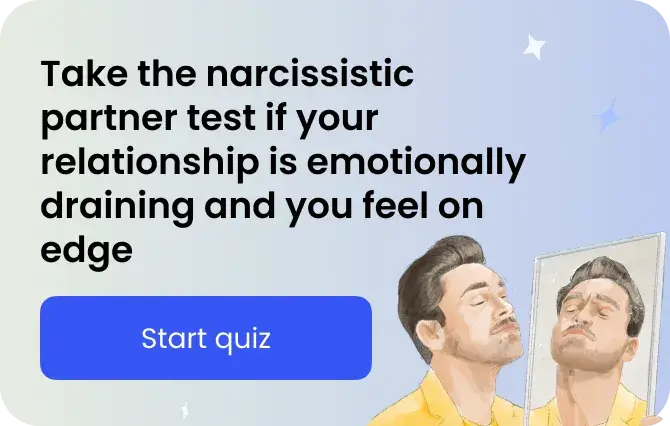Ghosting is a type of behavior when a person simply stops all communication, making the other person question the interactions and connection. It can be painful, cause emotional distress, and leave the person who has been ghosted without closure or understanding of what went wrong. Here, we’ll delve deeper into why it can happen, the early signs, traits of ghosters, and ways to handle it.
What is ghosting?
Scientists define ghosting as “a sudden or gradual but always final and unilateral communication stop.” [1] Simply put, it means cutting off contact with someone without explanation, warning, or answering them later if the person tries to get in touch. People who behave this way are like ghosts: they vanish into the air suddenly and leave too many questions behind.
While ghosting has become widespread in dating apps and social media platforms and tends to refer to romantic relationships, it can also be applied to any other form of communication. If someone’s friendships or family relationships finish suddenly, and a cousin, aunt, or best friend simply disappears, leaving messages unanswered, it can be considered ghosting as well.
There’s also a term ‘soft ghosting,’ which means that someone turns minimizing contact into a gradual process. This person still technically responds — maybe with a like or a short emoji — but avoids real engagement. After some time, the messages get shorter, the replies slower, and eventually, the conversation fades into nothing.
Of course, it can happen naturally between two people who no longer share something similar. Yet, if one person is still interested in communication and the other vanishes with no explanation, it’s ghosting as well.
Have you ever been ghosted?
Why do people ghost others? — 6 reasons
A study published in the Social Science and Humanities Journal analyzed why people engage in ghosting. Among the most common reasons are avoidant attachment, relationship incompatibility, avoiding conflict, and relationship dissatisfaction. [2] We’ll delve into each one further and add other possible reasons that can make people avoid awkward conversations and leave the door open when leaving.
1. They want to avoid confrontation
It doesn’t matter whether two people had a few dates or talked with each other for a little longer; ghosters might simply feel afraid of conflict. They may fear saying that they’re not satisfied with something face-to-face or even through messages and might find it simpler to leave silently.
For instance, a person with low self-esteem can experience trouble handling disagreements and can interpret honest conversations as personal attacks. On the other hand, someone who grew up with emotionally distant parents might learn that showing feelings leads to discomfort or rejection. So later in life, they may copy that same pattern, pulling away or disappearing instead of dealing with emotional conversations directly.
2. They see a mismatch in needs
Some people, especially during online dating, may try to avoid status while looking only for “a fun part” (as they explain in the study). Thus, when things get too serious, and another person becomes interested in official dating, it can make them engage in soft ghosting or simply disappear. They might feel cornered by the intense romantic interest and expectations they never intended to meet and choose to leave without explanation.
3. They live with avoidant attachment styles
Childhood trauma and the environment in which a person has grown up directly influence the way we build relationships later. [3] As such, if someone lived with narcissistic parents, a cold mother, or emotionally unavailable caregivers, they might have learned to suppress their emotions. This, in turn, could have become a reason for those who’ve gained anxious-avoidant or dismissive-avoidant attachment.
Of course, there might be other reasons for developing these attachment styles, like repeated rejection in past relationships or bullying. Over time, these experiences can teach a person that closeness leads to pain, so it’s much easier to avoid confrontation and end a relationship silently instead.
4. They feel dissatisfied with the existing relationship
This behavior might stem from the two previous reasons. People with avoidant attachment styles can try to avoid talking about problems in relationships (particularly as they believe that this way, they take care of their feelings and those of other people).
Yet, this dissatisfaction can grow over time, thus making them emotionally withdraw even further. Eventually, they feel less connected and just leave without saying anything.
5. They fear the other person’s reaction
While it wasn’t stated in the study, some people might simply feel scared to finish relationships with a direct conversation because of the other person’s reaction. This may be particularly true for those who want to leave abusive relationships and have already noticed the warning signs that it might be dangerous to speak up.
6. They have other reasons to ghost
There are numerous reasons why people can turn to ghosting someone. It shouldn’t necessarily happen because of fear, cruelty, or attachment issues; it might happen for more everyday, messy reasons. Among the ones that can trigger the silent end of a relationship are:
- being overwhelmed and emotionally drained
- not fully understanding the other’s emotions
- believing that silence is kinder than rejection
- not knowing how to handle uncomfortable conversations
- feeling guilty and ashamed, etc.

What does ghosting say about the personality traits of the ghoster?
Whatever the reason for ghosting — if it wasn’t fear for life and safety — people who opt for vanishing into thin air may share certain personality traits or emotional patterns. A study revealed common traits of people who may ghost in dating.
These are called the Dark Triad (psychopathy, Machiavellianism, and narcissism). [4] Here are the patterns and behaviors all 3 of them have in common:
- Manipulativeness. Potential ghosters may lack respect and a sense of emotional responsibility. Whether lovers or friends, they can exploit other people to get what they need.
- Lack of empathy. Such people can have poor communication skills and lack emotional intelligence in general. They might simply not care if another person feels hurt.
- Emotional detachment. Those who opt for ghosting may suppress their feelings and avoid emotional intimacy. Instead of dealing with discomfort, they distance themselves.
- Avoiding accountability. Ghosters don’t want to take responsibility for their actions, which can also show up before the relationship ends.
You’ve started talking to a person on dating apps, social media, or even through friends. Find out more about each other’s personalities and see whether your communication styles align.
How ghosting affects the person ghosted
Ghosting can be considered a form of emotional rejection that may significantly hurt another person. When a ghoster ends a relationship and cuts contact without warning, it can feel like a sudden loss and bring similar emotional pain. There was also a study published in Sexuality & Culture that found out the outcomes of being ghosted, particularly:
- Decreased self-esteem. Experiencing ghosting harms self-respect and makes people consider that there’s something wrong with them.
- Increased anxiety. Those who have faced this form of social rejection may become more anxious in their next relationships or in life in general, trying to avoid the repetition of the experience.
- Sadness, stress, or frustration. Ghosting might have emotional consequences similar to romantic breakups, particularly during the early “honeymoon” stage.
Interestingly, ghosting can have the most impact when someone feels emotionally attached or connected, even if the relationship was short or seemed casual. [5] Moreover, it can also cause trust issues because people can’t explain why the other person disappeared, which can make them question whether future connections will end the same way.
Is ghosting emotional abuse?
A 2025 study considered ghosting, along with gaslighting and coercion, a form of emotional abuse. [6] There are also mental health professionals who consider ghosting a form of emotional abuse. In any case, ghosting can seriously impact the other person’s feelings, especially if it’s done to avoid responsibility or to be mean.
Expert Insight
“Ghosting could be considered a form of emotional abuse because of its harmful impact on the other person; however, it’s important to remember that emotional abuse is often inflicted as a form of controlling another person. While it is immature and rude, ghosting someone to avoid the conflict or discomfort around ending the relationship is not considered an attempt to control another person, and thus would not be considered emotional abuse.”
Hannah Schlueter
Mental health professional
Can a brain respond to ghosting like it does to physical pain?
According to the American Psychological Association, the pain of being excluded is not so different from the pain of physical injury. [7] Brain imaging studies show that social rejection, including being ghosted, activates the same regions of the brain that respond to physical pain. This overlap explains why ghosting can be so overwhelming: it doesn’t just hurt emotionally; the brain processes it like real, physical harm.
How to take care of mental health if you’ve been ghosted
The widespread use of social media and dating apps makes it easier to break up without actually talking to them. Still, it might be rather painful or even traumatizing. Thus, here’s the best course of action if you identify that you’ve been ghosted:
- Understand that there’s nothing wrong with you. This situation isn’t about you; it’s about the other person. It could have happened to anyone, and it doesn’t mean that you’re unworthy. You’re enough, just as you are, and you deserve honest communication.
- Avoid chasing or overanalyzing. Stop thinking about why people ghost. It might be painful and confusing, but it’s better to avoid ruminating on something you may never get answers to. Obsessing only keeps you stuck while the other person has already moved on.
- Talk to someone you trust. A reliable family member can support you when you’ve been ghosted. A trustworthy person can give you a sense of stability and remind you of your worth.
- Engage in self-care. When you see that there’s no point in waiting around, it’s better to focus on yourself. Mindfulness, embracing new healthy habits, and self-discovery with the Breeze app can bring back the inner balance.
What should a person do if they’re thinking about ghosting someone?
If someone wants to end a relationship or simply stop talking to a person, it might be better to consider alternative options. For instance, they can cut ties through a short yet respectful message or a phone call so as not to leave another person with a sense of hope.
We asked Hannah Schlueter, MA, LAC, to provide more ideas on what strategies to choose instead of ghosting. “Direct communication will always be the most deal, and there are multiple ways to go about this. Having a friend help you draft a message or practice what to say is one example. It’s also important to remind yourself that communicating is respectful to both parties, and ghosting only reinforces maladaptive communication patterns that can carry with you into future relationships.”
Conclusion
Whether you’ve ever been ghosted or want to engage in ghosting someone, it might be helpful to delve deeper. The Breeze app offers self-discovery tests, journaling options, and a helpful mood tracker that allows you to notice how certain interactions and communication with others influence your well-being and mental state. With greater self-awareness, you can respond more mindfully to emotional challenges and build healthier connections in the long term.
Frequently asked questions
What can I do when the ghost comes back?
If a person you’ve tried dating and then stopped talking to comes back, it’s better to be careful. Here are some ideas on how to respond to it with self-respect:
- Set boundaries
- Take time and answer when you’re ready
- If you’re open to talking, ask for an explanation
- Notice your emotions
- If they want to get back to talking, trust actions over words
Also, remember that when receiving the first message, you can ignore them back as well. There’s nothing wrong if you want to close this page completely.
Can ghosting someone ever be a valid reason?
While in most cases, ghosting isn’t the best option, there are some situations when it might be a form of self-care and even a matter of safety. These are some of the most common scenarios:
- The person is emotionally or physically abusive
- They ignore your clearly stated boundaries
- They manipulate you regularly
- You feel unsafe or anxious around them
- They show obsessive or stalking behaviors
- They love-bomb and then devalue you
- Your mental health gets worse because of this communication
Sources
- Janneke M. Schokkenbroek, Alessia Telari, Luca Pancani, Paolo Riva. “What is (not) ghosting? A theoretical analysis via three key pillars.” Computers in Human Behavior, 2025
- Widianti, Rizka & Hasani, R. & Latipun,. (2024). “Phenomenological Studies: Exploring Someone’s Reasons for Doing Ghosting.” Social Science and Humanities Journal.
- Lijuan Quan, Kun Zhang, Haiyan Chen. “The relationship between childhood trauma and romantic relationship satisfaction: the role of attachment and social support.” Frontiers in Psychiatry. 2025
- Peter K. Jonason, Izabela Kaźmierczak, Ana Catarina Campos, Mark D. Davis. “Leaving without a word: Ghosting and the Dark Triad traits.” Acta Psychologica. 2021
- Langlais, Michael & Citrano, Emily & Renteria, Liliana & Gica, Raluca & Ormsbee, Michael. (2024). “Where Did You Go? The Psychological and Physiological Consequences of Ghosting in Romantic Relationships.” Sexuality & Culture.
- Lopes, Barbara & Jaspal, Rusi. (2025). “Exposure to ghosting, gaslighting and coercion and mental health outcomes.” Partner Abuse.
- American Psychological Association. “The pain of social rejection.” 2012
Disclaimer
This article is for general informative and self-discovery purposes only. It should not replace expert guidance from professionals.
Any action you take in response to the information in this article, whether directly or indirectly, is solely your responsibility and is done at your own risk. Breeze content team and its mental health experts disclaim any liability, loss, or risk, personal, professional, or otherwise, which may result from the use and/or application of any content.
Always consult your doctor or other certified health practitioner with any medical questions or concerns
Breeze articles exclusively cite trusted sources, such as academic research institutions and medical associations, including research and studies from PubMed, ResearchGate, or similar databases. Examine our subject-matter editors and editorial process to see how we verify facts and maintain the accuracy, reliability, and trustworthiness of our material.
Was this article helpful?







